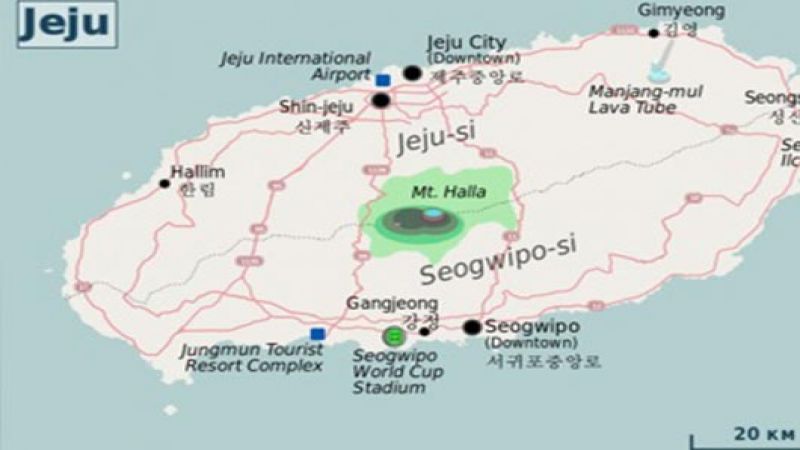
When Air Asia began offering cheap direct flights to Korea’s resort island of Jeju from Kuala Lumpur in December last year, people were excited for the prospect of boosting tourism from Southeast Asia.
Instead, something unexpected happened when Yemeni migrants who were transiting through Southeast Asia seized on the direct flights to Jeju.
In order to promote itself as a short stay tourist destination Jeju Island does not require a visa for entry for many nationalities, a visa policy which differs from the rest of South Korea.
Over the last six months more than 500 Yemenis have settled on Jeju Island to the surprise and consternation of many in South Korea. Some have since been resettled in other cities of Korea with the help of the country's immigration service.
These resettlements have sparked protests and opposition to the idea of allowing the Yemeni asylum seekers entry to the rest of the country.
Describing the situation, a government official was quoted anonymously by the Korea Times as saying: "People here heard a lot about what happened in Europe, such as Germany, after the influx of refugees. Citizens are concerned about security and their own safety. I know some are worried Yemenis would steal jobs previously held by Koreans. I think few people here are convinced by such claims. The primary source of the backlash against Yemeni refugees here is fear for security."
Reports say that many local on Jeju Island are concerned about the rising numbers of Yemenis, who for the most part are spending the last of their money to stay in cheap hotels while they await the possibility of resettlement.
Some have reportedly begun sleeping outside in parks at night, which is alarming to Jeju islanders who are not accustomed to such a situation.
To maintain order, and help keep the Yemeni population fed and sheltered, the provincial government has teamed up with the immigration service to provide employment for the refugees.
According to a Korea Times report from late July, over half of the Yemeni population on Jeju Island had been provided with work in either local eateries or in the island’s fishing or agricultural industries.
The Governor of Jeju Island Won Hee-ryong has expressed his province’s commitment to offering humanitarian assistance to the refugees.
He was quoted as saying “They escaped from their country at war and came all the way to Jeju, so we should cope with the situation wisely. We won't be stingy with humanitarian assistance."
However, opinion on how to handle the unexpected influx has divided locals, and raised tension on the issue of immigration across the country.
To cut stop the entry of further Yemeni asylum seekers, as of July 1, South Korea removed Yemen from the list of countries whose citizens are permitted to enter Jeju without a visa.
However, the resettlement or transit of the remaining Yemenis is still a point of controversy.
On July 7, Korea Times reported that a petition to the presidential office in opposition to the entry and resettlement of the Yemeni refugees has amassed more signatures than any previous presidential petition in the nation’s history.
More than half a million South Koreans, 642,000 and climbing, have expressed opposition to granting legal refugee status to the migrants.
The petition will close on Friday, July 13, and the central government will be expected to address it within a month, before Aug. 13.
Reportedly the government via the Ministry of Justice has already decided to form a legal review board to look at the refugees on a case-by-case basis.
The situation, which has triggered protests and counter protests in Seoul, is a very curious situation for South Korea to deal with. Besides suddenly finding itself in the midst of an unexpected refugee crisis involving migrants from a Muslim majority country, the central South Korean government also has unique relationship with the local Jeju Provincial government, which due to historical factors has a degree of autonomy that the other provinces of South Korea’s do not possess.
The resolution of the Yemeni migrant situation in South Korea, a country that tends to pride itself on ethnic purity, will be a test in crisis management for the local government and population of Jeju Island, as well as the central government in Seoul.